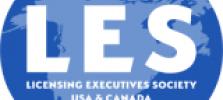Avelumab, New Therapy for Metastatic Merkel Cell and Urothelial Carcinomas
Through a CRADA with EMD Serono, NCI played an instrumental role in developing and
expediting regulatory approval of EMD Serono’s checkpoint inhibitor, avelumab. Avelumab
received FDA approval in 2017, only four years after EMD Serono and NCI added the study of
avelumab to their CRADA. This was a remarkably fast developmental and regulatory approval
timeline.










